Reflections on the VIII International Congress on Environmental Education in Portuguese-speaking Countries and Communities
By: Tamy Kobashikawa / Image credit: Filipe Veras and Tamy Kobashikawa
The 1st Portuguese Speaking Event of the Earth Charter, held on Monday, July 21, 2025, in the city of Manaus (Brazil), was a moment of connection, listening and collective commitment. As part of the official program of the VIII International Congress on Environmental Education in Portuguese-speaking Countries and Communities, the event brought together more than 100 participants from various Portuguese-speaking nations.
In order to strengthen the bonds between the Earth Charter and educational practices focused on sustainability in Portuguese-speaking countries, the Integrated Event provided opportunities for educators, managers and students to share practical experiences of the application of the Charter in public policies, community initiatives and formal and non-formal education processes. Over the course of four thematic panels and a round table , sensitive and profound reflections were shared on the role of the Charter as a pedagogical instrument and ethical reference for the challenges of our time.
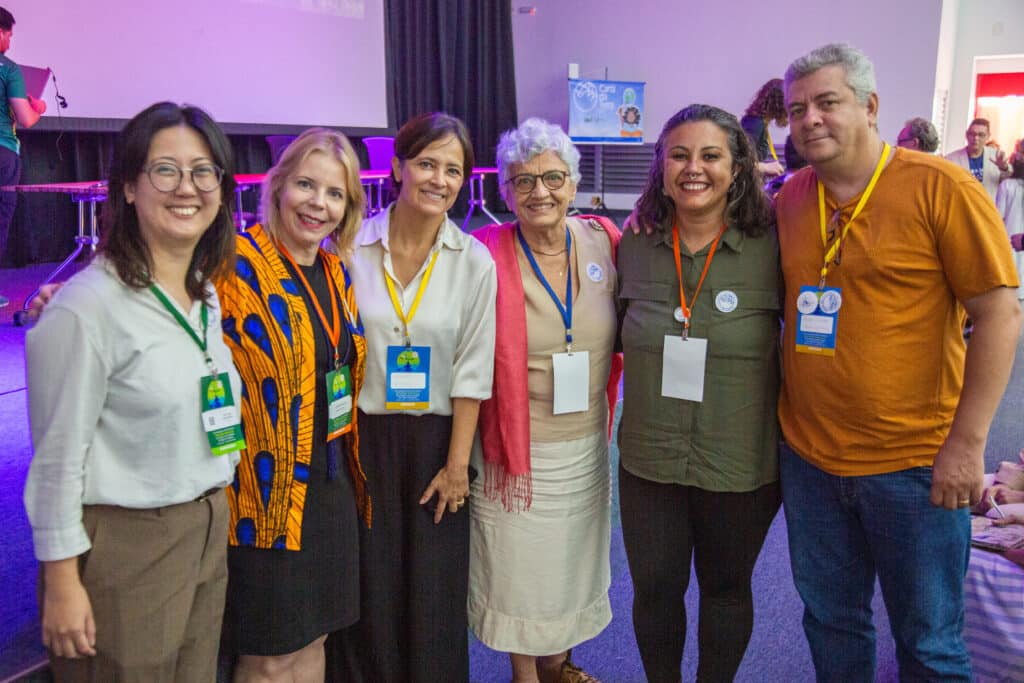
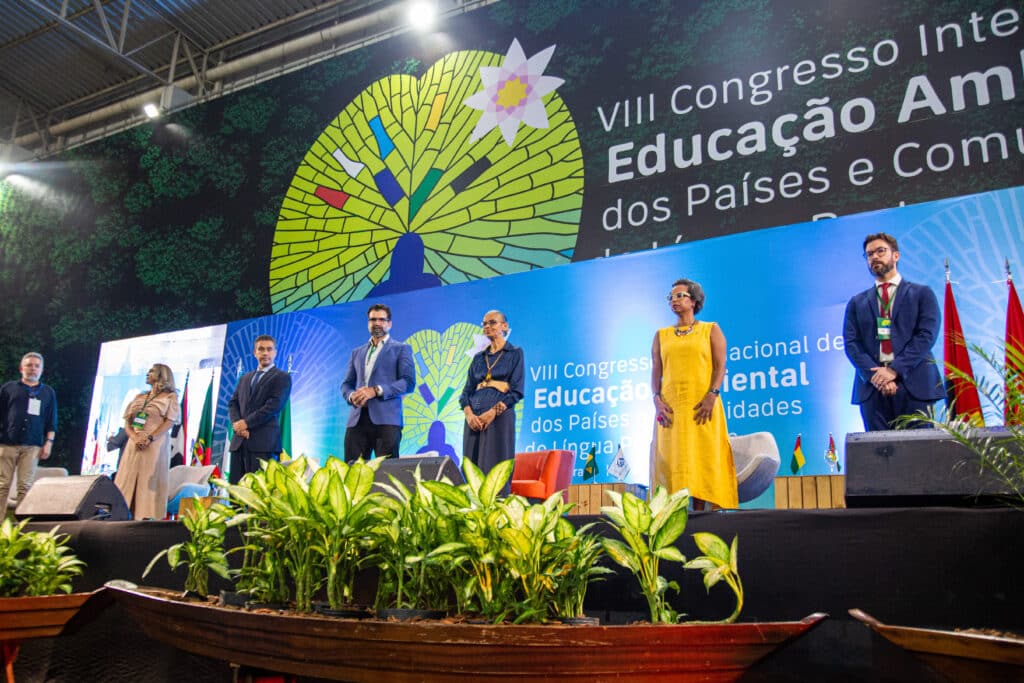
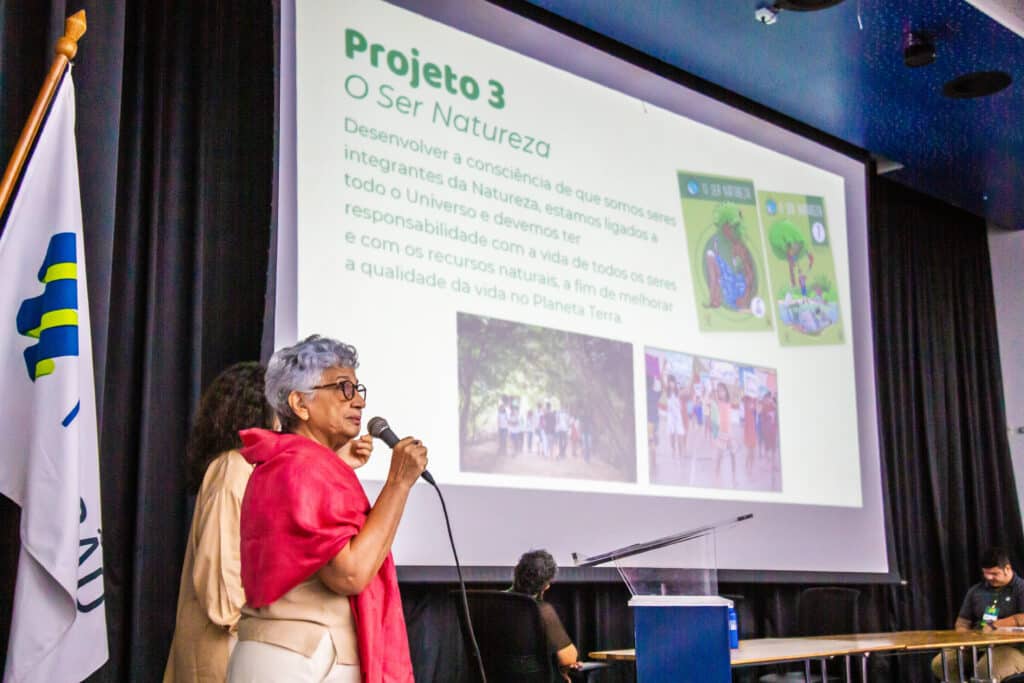
In the following days of the Integrated Event, the pillars of the Earth Charter – respect and care for the community of life, ecological integrity, social and economic justice, and democracy, non-violence and peace – were present across the debates, workshops and sessions of the Congress. On Friday, a workshop was held on the theme of the Sustainable Development Goals (SDGs) and the Earth Charter (EC) as environmental education strategies for young people to tackle the challenges facing local communities, organized by Isis Torales, project manager and coordinator of the Earth Charter at the Portuguese Association for Environmental Education (ASPEA), Ana Almeida, biology and geology teacher and ASPEA volunteer, and Joaquim Ramos Pinto, president of ASPEA’s national board.
1. Climate Emergency and Ethical Commitment
We live in a time marked by social imbalances, environmental collapse and planetary uncertainties. In this scenario, the Earth Charter reaffirms itself as an ethical guide to consciousness, responsible action and the collective construction of sustainable alternatives.
During the Integrated Event, Mirian Vilela, executive director of Earth Charter International, recalled the UNESCO resolutions (32C/17 of 2003 and 40C/20 of 2019), which recognize the Charter as an important reference for sustainable development as well as an educational instrument. The proposal of ethical, ecological and systemic literacy offered by the document provides us with the necessary foundations to form a planetary citizenship – aware of the interdependence of life and committed to its preservation.
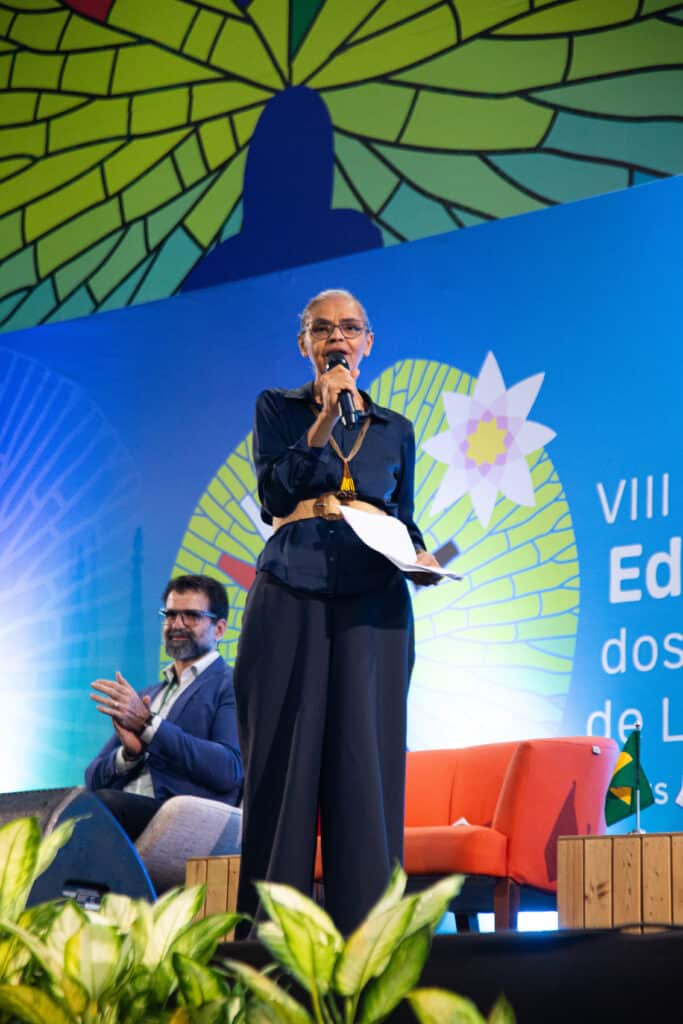
Marina Silva, Brazil’s Minister for the Environment, made a powerful provocation in her opening speech: “In 1992, we were educating for the future. Today, the future is already here. How do we educate after the future?”
This thought resonated strongly with the participants and with me, instigating reflection on the limits of modern rationality and the urgency of re-enchanting education with ethical and affective meanings. She led us to reflect on the fact that today we are living in the “future” so envisioned in 1992, even though we haven’t fulfilled the commitments we made. How can we educate in this era that is after the future we envisioned? Marina urges us that COP30 should no longer be a starting point, but a stopping point. So that there are no more new starting points, but action on top of everything that has already been agreed.
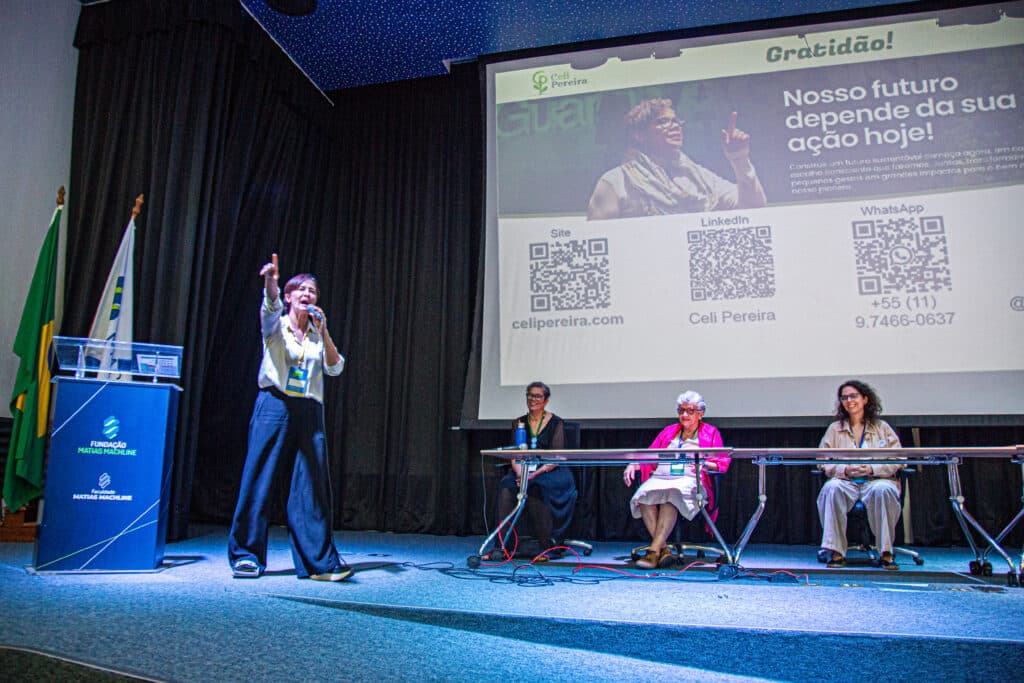
2. Portuguese-speaking Cooperation for Climate Justice and the Common Good
A second focal point of the event was the enhancement of cooperation between Portuguese-speaking countries, with climate justice and care for the common good as a goal. The cultural and geographical diversity of the Portuguese-speaking territories – from the Amazon to the Atlantic islands, from the African metropolises to the riverside communities – was celebrated as a wealth and power for building a future of solidarity.
Throughout the event, multiple speeches highlighted the importance of ancestral knowledge, intercultural dialog and the concept of buen vivir as possible approaches to regenerating human and environmental relations. On Thursday, tours to native communities allowed for moments of sensitive listening about cultures, livelihoods and sustainable practices based on coexistence with nature.
These experiences became more profound when, on July 24, the world marked Earth Overshoot Day – a date that represents the moment when we exceeded the planet’s annual capacity to regenerate its resources. This milestone sheds light on global ecological inequalities: while countries consume beyond planetary limits, others survive on the edges, often forced to deplete their environmental portion.
3. Climate Justice, Equity and Inclusive Participation
The third focal point highlighted the urgent need to redefine the idea of prosperity, shifting the focus from consumption to the fullness of being. True prosperity, it was stressed, is not measured by accumulation, but by dignity, peaceful coexistence and the fulfillment of meaningful lives. Here I return again to Minister Marina Silva’s speech.
The minister warned of the need for a “pause” in the face of the accelerated destruction of ecosystems and human relations: “We are destroying the planet because we have confused prosperity with possession, when we should be rediscovering the richness of being.” The Earth Charter, in this context, acts as a compass for this re-encounter with oneself, with others and with nature. It inspires paths of regeneration that involve listening, intercultural dialog, spirituality and peaceful coexistence.
Environmental education, therefore, needs to be committed to educating critical, sensitive, and engaged individuals who are capable of acting in favor of socio-environmental justice. It is crucial to educate for empathy, dialogue and transformation – in its multiple cultural, spiritual and territorial expressions.
Several speakers stressed that inclusion and equity are not isolated goals, but the foundations of a sustainable world. Promoting intergenerational justice, recognizing the rights of original peoples, guaranteeing equal opportunities and respecting the diversity of identities are central to transformative education.
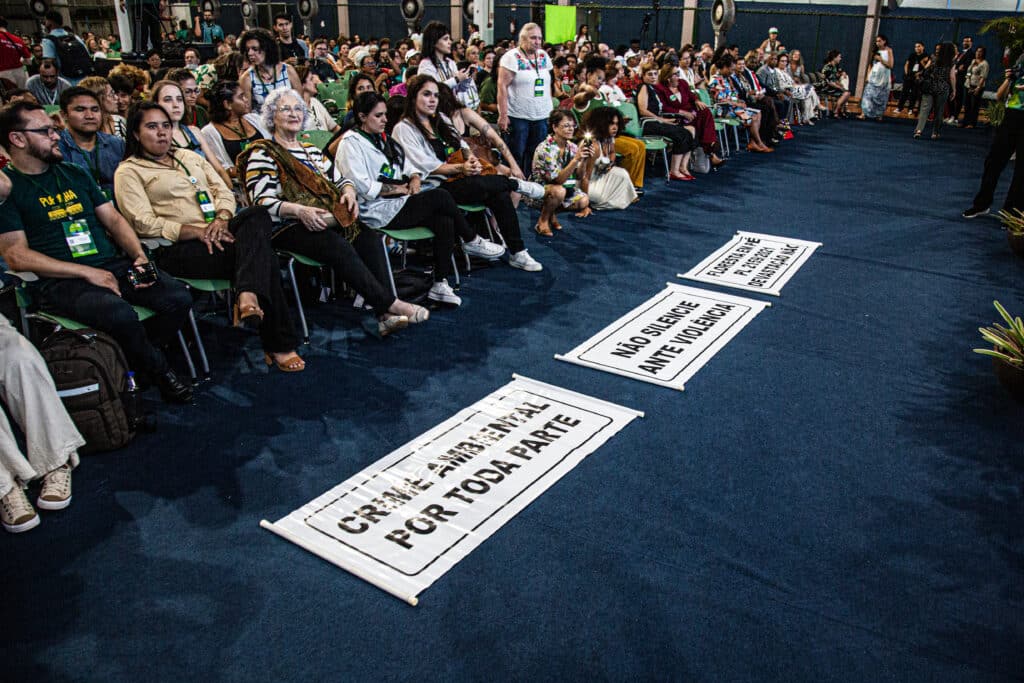
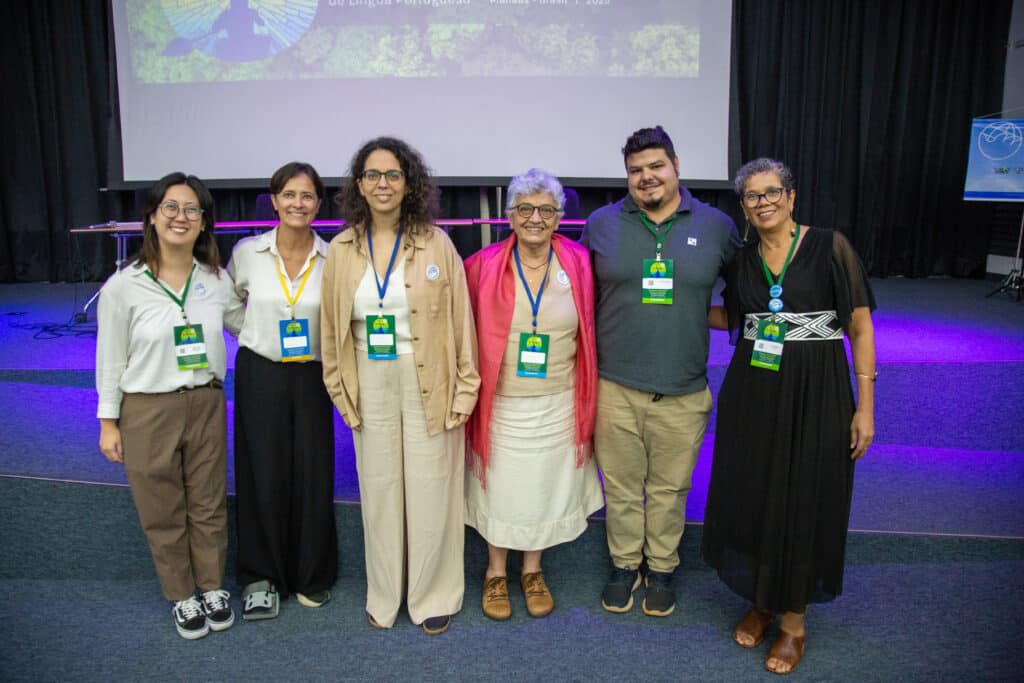
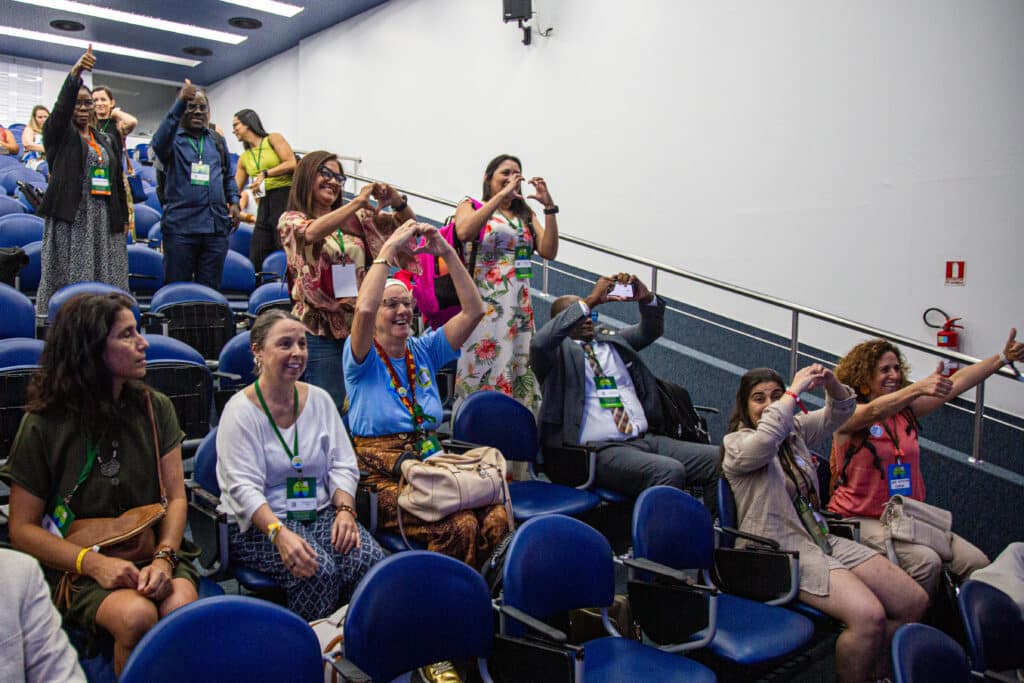
Earth Charter translates this horizon by proposing a new paradigm of planetary consciousness, based on respect for the community of life, social and economic justice, ecological integrity, and democracy, non-violence and peace.
I conclude my reflection by thanking all the organizers of the Congress, especially those who organized the Integrated Meeting: the Portuguese Association for Environmental Education (ASPEA), the Center for Environmental Education and Heritage Preservation (CEAPP/UFPR), the Terrazul Alternative Association, the Earth Charter Network Brazil, Earth Charter International, and the Soka Amazon Institute.
Dr. Tamy Kobashikawa is an Earth Charter Educator. The author has investigated social assistance programs in Brazil and international cooperation in the agriculture field between Mozambique, Brazil, and Japan. Currently, she studies the intersection of Value-creating Approach and Human Development in environmental education projects in the Amazon.






